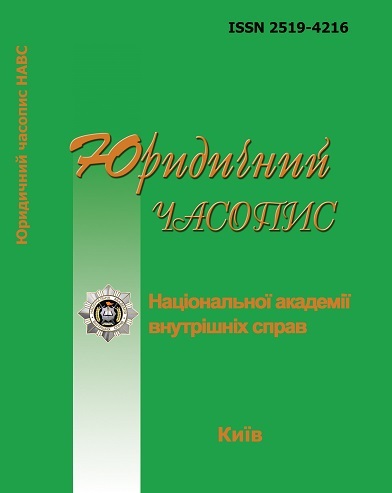Protection of Human Life and Prevention of War Crimes and Crimes against Humanity in UN Documents
Keywords:
protection of life, war crimes, crimes against humanity, genocide, discrimination, resolution, declaration, convention, UN
Abstract
The article presents one of the most acute world problems that threaten life, peace and security of mankind – war crimes and crimes against humanity. They attracted attention of the international community to the value of human life, the need of protection of human rights at the global international level, as well as bringing to justice people who committed these crimes and not imposing any limitations to these crimes, that will ensure the inevitability of punishment.As the UN plays a key role in promoting and protection the peace, human rights and human dignity the author has analyzed a large number of UN documents (Convention on the Prevention and Punishment of the Crime of Genocide; Convention on the Non-Applicability of Statutory Limitations to War Crimes and Crimes Against Humanity; Universal Declaration of Human Rights; International Covenant on Civil and Political Rights; Declaration on the Elimination of All Forms of Racial Discrimination; International Convention on the Elimination of All Forms of Racial Discrimination, International Convention on the Suppression and Punishment of the Crime of Apartheid; Declaration on Apartheid and its Destructive Consequences in Southern; resolutions, adopted by the General Assembly, the Security Council), that reflect the activities of the international community in prevention of war crimes and crimes against humanity.One of the most flagrant, cruel and immoral crime in international law is genocide as acts committed with intent to destroy, in whole or in part, a national, ethnical, racial or religious group. The importance of the problem of international legal recognition of the Holodomor of 1932–1933 in Ukraine as an act of genocide, in the context of Ukraineʼs participation in the 72nd session of the UN General Assembly, which coincides with the 85thanniversary of one of the most violent and unprecedented number of victims of international crimes of the twentieth century – the Holodomor, is accentuated. Establishing the first permanent international legal body – the International Criminal Court was an important step to improve the international justice system in cases concerning genocide, crimes against humanity, war crimes and crimes of aggression. The author also draws attention to the issue of ratification of the Rome Statute, which is currently open to some countries of the world, including Ukraine. At the same time, integration into the international criminal justice system helps to protect human rights, conduct impartial court investigations, determine fair punishment for peace and security in the world.Downloads
Download data is not yet available.
Abstract views: 165 PDF Downloads: 59
How to Cite
[1]
Ostrovska, B. 1. Protection of Human Life and Prevention of War Crimes and Crimes against Humanity in UN Documents. Law Magazine of the National Academy of Internal Affairs. 14, 2 (1), 405-415.
Issue
Section
International experience
Copyright (c) 2018 Law Magazine of the National Academy of Internal Affairs

This work is licensed under a Creative Commons Attribution-NonCommercial-NoDerivatives 4.0 International License.
- Authors reserve the right to authorship of their own work and transfer to the magazine the right of the first publication of this work under the terms of the Creative Commons Attribution License, which allows other persons to freely distribute published work with mandatory reference to authors of the original work and the first publication of an article in this magazine.
- Authors have the right to enter into separate additional agreements on non-exclusive dissemination of the work in the form in which it was published in the journal (for example, to post an article in the institution's repository or to publish as part of a monograph), provided that the link to the first publication of the work in this journal is maintained.
- The journal's policy allows and encourages the posting of articles by authors on the Internet (for example, in electronic storehouses of institutions or on personal websites), both before the submission of this manuscript to the editorial office and during its editorial processing, as this contributes to the creation of a productive scientific discussion and positively affects the efficiency and dynamics of citing the published work.




